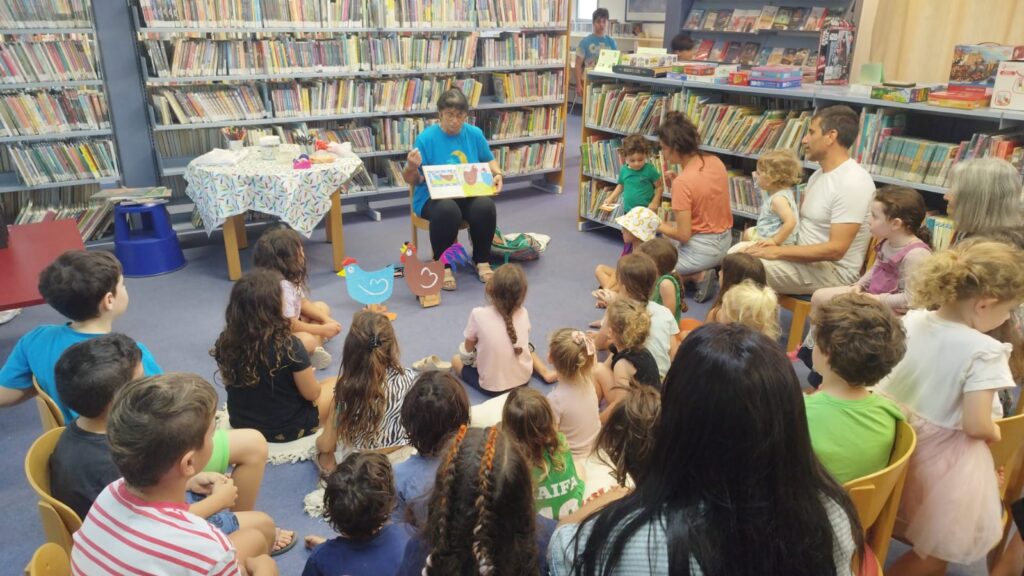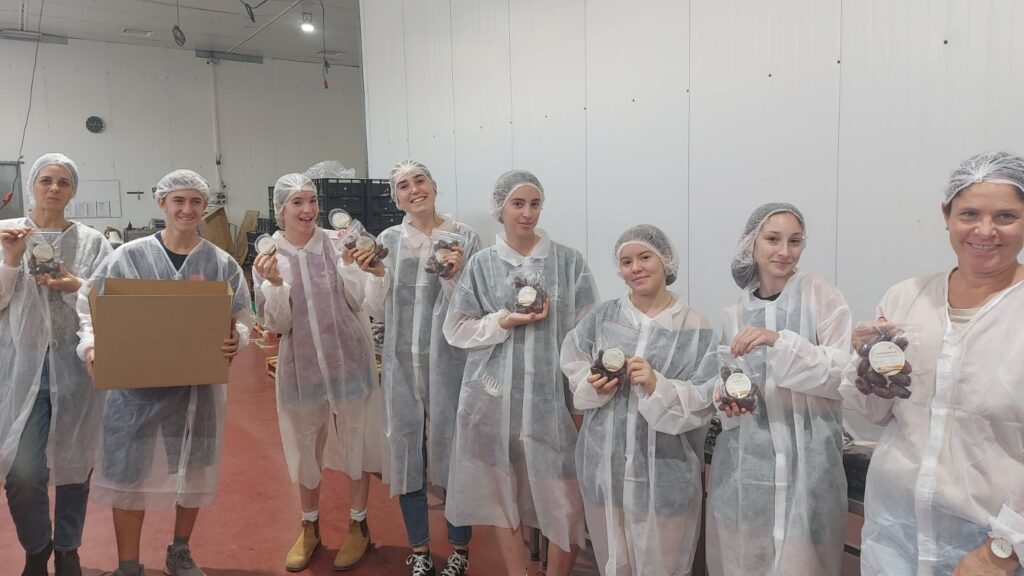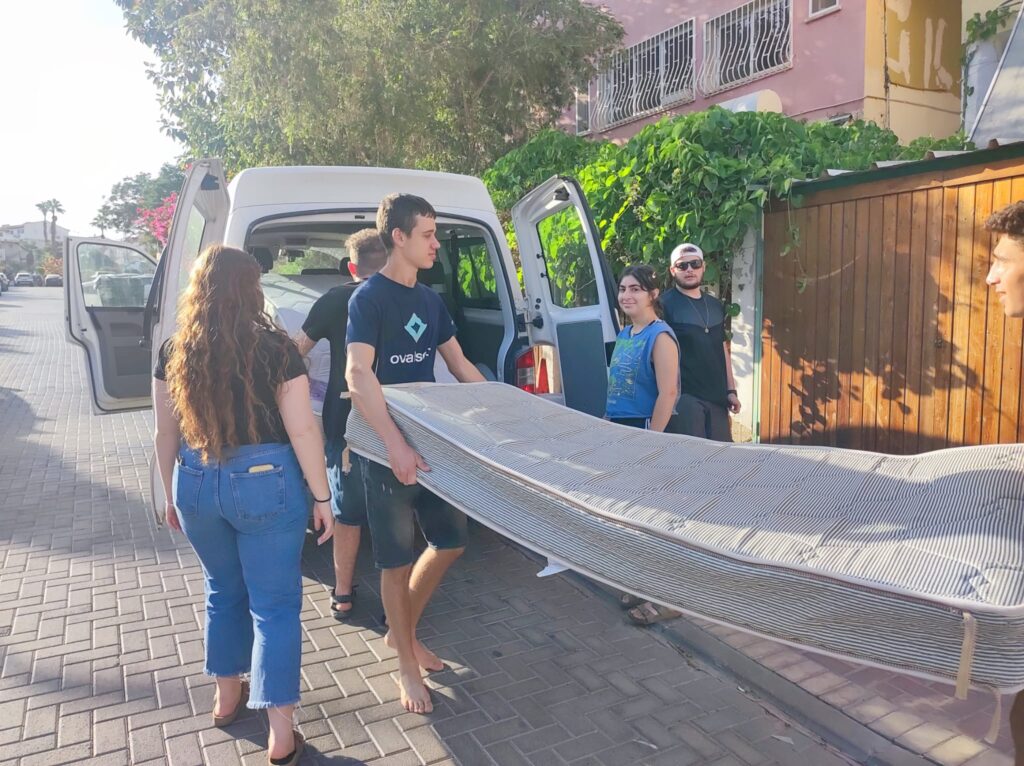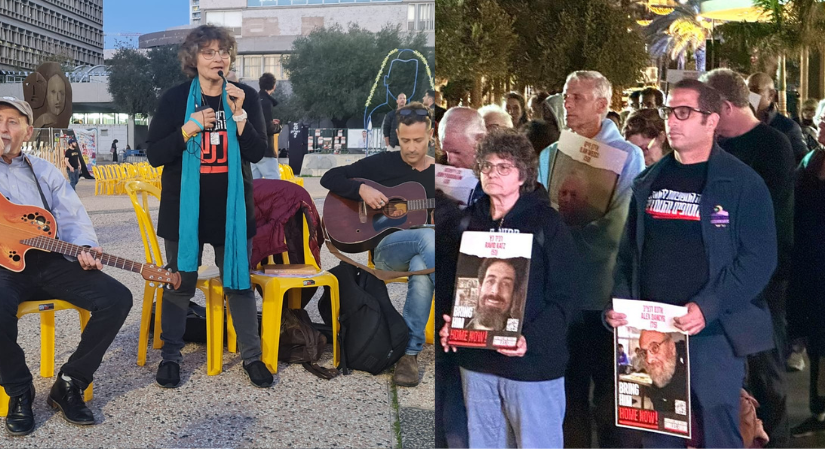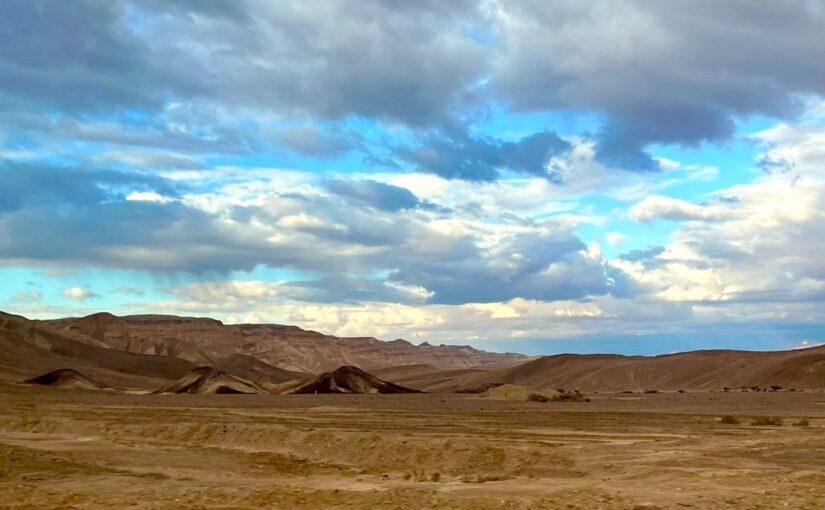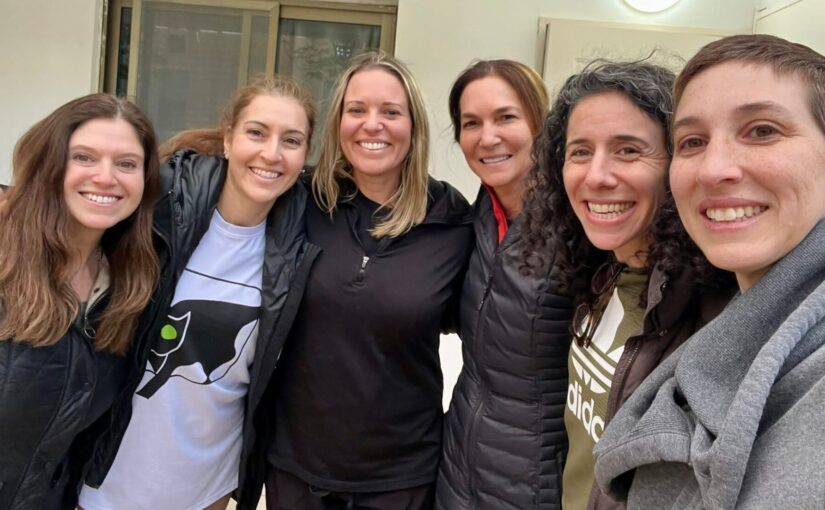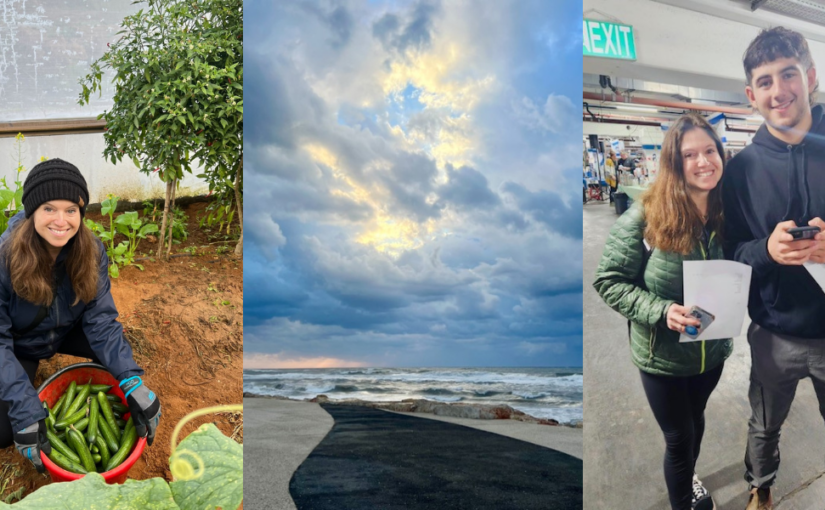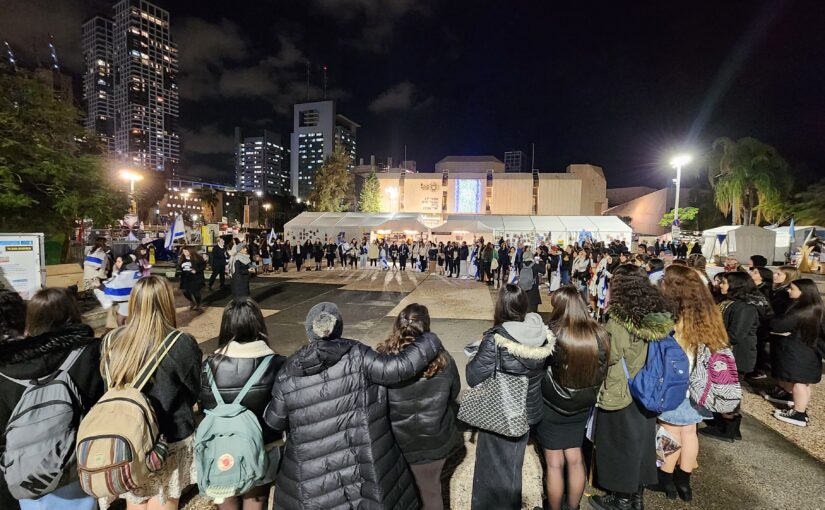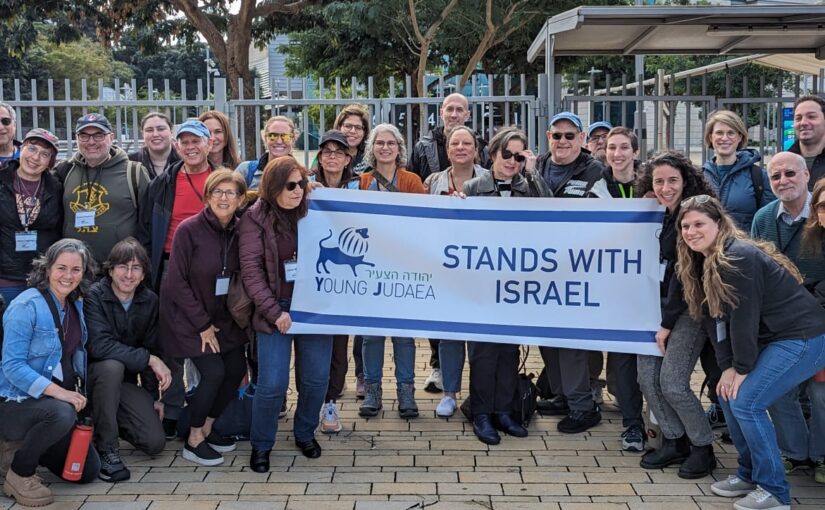By Vivian Genn-Pittman, Participant on Alumni Trip to Israel, January 2024
Like so many, I have been horrified by the senseless, barbaric atrocities committed by terrorists against Israelis since October 7th.
I have been heartbroken over the loss of life, by the hatred and evil, and for those who have lost and are still missing loved ones. I have been worried for the safety and well being of so many Israelis including dear friends and family, and for the wholeness of Israeli society and Jewish communities around the globe.
Although I have been moving forward and supporting Israel and the Jewish community in a multitude of ways, I have felt an emptiness in my heart and have wanted to do more.
Once I heard about the Young Judaea Volunteer Mission to Israel, I knew I needed to be a part of it, to go to Israel. I felt an obligation to bear witness, to listen and learn, and to share the stories. I needed to be in Israel, to see my son Sam who is currently on Year Course, to hug my cousins and friends, and to be with this community of like-minded people supporting Israel and Israeli society during this great time of need.
I was nervous and also excited to go to Israel during this uncertain time.
Once in Israel, my heart was both broken and full. I was emotional, and grateful to be there.
I was inspired to be in Israel, to be in our beautiful country, our Jewish homeland, and to see people coming together to help, repair and move forward with strength.
In Israel, I laughed with family and friends, and cried at the devastating loss and ongoing challenges. I learned from soldiers within and close to my family about the unbelievable situations they face daily, and spoke with people who have lost loved ones or are waiting for loved ones to return home. I listened to one cousin decide which funeral to attend as she had two in one day, another explain the great measures the IDF takes to preserve all civilian life, and yet another explain how she and other psychologists are completely overwhelmed by the enormous and seemingly never-ending needs of a traumatized society.
Our group questioned the senseless hatred, took selfies, ate delicious food, navigated quick shopping sprees, volunteered, heard testimonies, hugged, and cried. We learned from Israelis about history, culture, climate, handling terrorism at home and coming together. We wondered how we got here, to this unbelievably difficult moment in time, why the world has so much hatred towards Jews time and time again, and how we will move forward. We listened in horror as survivors of the Nova festival and of Kibbutz attacks shared their nightmares. We heard healthcare providers and policemen describe gruesome, unimaginable scenes yet somehow muster up the courage and strength to press on and save lives. We listened to Arab Israelis who rescued teens and who continue to support women and children in need, to counselors for victims of rape and trauma, and to community leaders who stand up to those trying to demonize Israel though propaganda and lies.
My heart was full as I spent time with enthusiastic Year Course participants I know and love, and with the dedicated Young Judaea staff caring for our kids while managing their own complicated lives. I felt pride as I volunteered at Eran’s Angels under the management of my son Sam, whose internship includes helping to orient, manage and organize volunteers as belongings are packed for citizens displaced by terror attacks. I prayed hard at the Kotel, and spent time with friends at Machane Yehudah. Our group pruned cucumber vines and picked cucumbers to help farmers in need, visited cemeteries to pay respect to lives lost, and met with parents of a young YJ alumni killed at the Nova Music Festival.
We visited Kikar Ha Chatufim, Hostage Square, one of the most heartbreaking places on earth, filled with gut wrenching posters, heartfelt tributes, mournful artwork, meaningful memorials.
We heard sirens, which both save and interrupt life, and were further reminded of the senseless hatred and terrorism that Israelis have lived with for decades. We also learned that it’s ok to laugh and love even during heartbreaking times.
We concluded our intense week at the beautiful and serene Young Judaea Kibbutz Ketura in the middle of the desert with introspection, reflections and Havdalah. We sang Ani Ve’ata and Hatikvah through tears, and said our goodbyes. We wondered how in the world we would process and share all that we had seen, heard and experienced, and transition back to our everyday lives. It is difficult.
While beginning to process, a few points are clear to me:
Israel is hurting so much. There is continued physical and psychological trauma in Israel everyday. Injuries, deaths, funerals, grief, uncertainty, instability. People are working extra hard to stay afloat. Life is difficult and will never be the same. It will take time and great effort to move forward.
We need to share the stories of survival, of heroism, of strength and of horror. There are many and they are all important. Learn facts and educate others.
Showing up matters.
Support, listen, learn, help, build and contribute to organizations which support and educate our youth.
Go to Israel if you can; it helps to repair and is deeply appreciated.
I am thankful for Young Judaea, a movement which has helped shape who I am today by instilling Jewish values, pride and a love of Israel since I was a child, one which continues to educate our youth and build a better tomorrow.
Be proud to be a Jew. We have survived and we will continue to do so.
Israel lives in a tough neighborhood, surrounded by hatred. The Israeli Defense Force is in place out of necessity, to defend against those who hate and want to destroy us. Israel has a right to defend herself, always.
Israel has lost the war on social media, and it’s disappointing and sometimes frightening. However, Israelis continue to function with a moral compass to protect all civilians and rid the world of terrorism.
The hostages need to be released. Where is the world, speaking up against such organized evil?
Israelis are demonstrating care, unity and great resilience each day, despite the trauma and uncertainty.
There is so much work to be done.
Praying we can move forward with strength, health, safety, kindness, truth, understanding, resilience, love and peace.
We will dance again.
Am Yisrael Chai.
For more participant reflections click here
